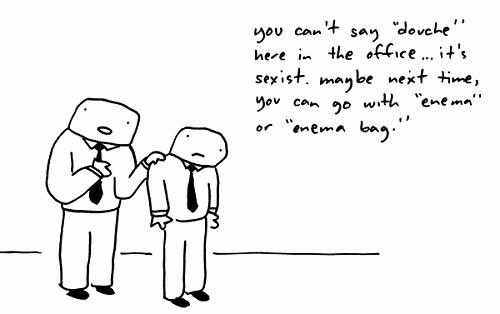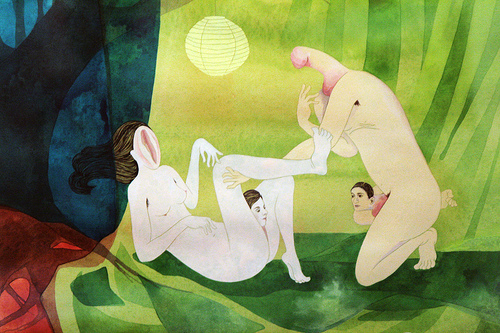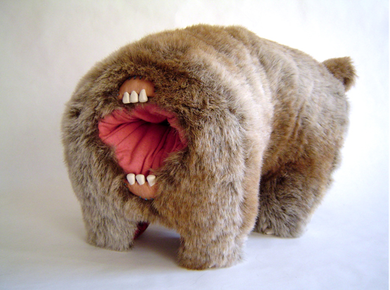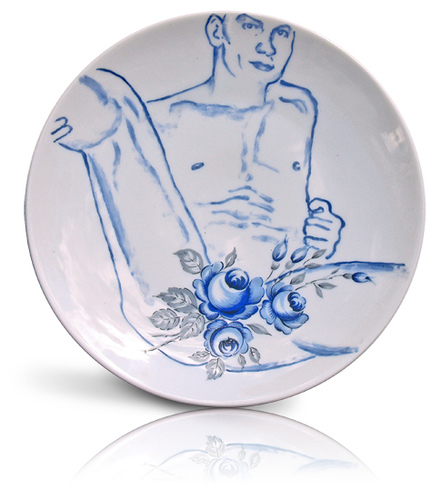I feel a meandering mind-map coming on, starting from an essay about slasher movies by Carol Clover (roughly summarized here ) that I read in this anthology about gender in myth.
On the civilized side of the continuum lie the legitimate genres; at the other end, hard on the unconscious, lie the sensation or ‘body’ genres, horror and pornography, in that order. …
It is a rare Hollywood film that does not devote a passage or two— a car chase, a sex scene— to the emotional and physical excitement of the audience. But horror and pornography are the only two genres specifically devoted to the arousal of bodily sensation. They exist solely to horrify and stimulate, not always respectively, and their ability to do so is the sole measure of their success…
I’ve seen a lot of people try to show that horror and pornography are related, usually based on some inarticulate statement about the similarity of sex and death. This bodily-sensation aspect seems like a more accurate connection. It’s got me editing my ideas about pornography (again), too.
For the last couple of years, my working definition has been that something is pornographic (to me) when it is presented for its own sake with no intention to communicate further meaning. Literal as opposed to symbolic, I guess. Showing literal sex rather than any experience of eroticism, or showing literal blood and gore rather than communicating a meaning of injury or death or fear (a la gore-porn). I don’t mean that as a diss to actual porn, more as an explanation of why I call Cute Overload cute-porn, and why I sometimes object to the ways other people use hyphenated, non-sexual porn labels. (I’m not sure I experience the Ikea catalog as storage-porn just because it shows a lot of shelving.)
This sensation definition is way simpler, and avoids having to argue about what is meaningful or symbolic. Since porn is some of the most intensely deconstructed media around and easily supplied with symbolic meaning, I think this simple sensation definition is a lot more accurate too. So thanks for that, early nineties essay collection.
Thinking about movies that are made for my body got me thinking about imax. All I want from a six-story tall movie is a strong sense of vertigo! I see an imax film about once every two years, but in my limited sampling they seem to be getting less motion-sick overall. Anybody have better evidence on that? (Tosczaks, or other bearers of yearly passes?) At the least, I’ve been disappointed with the imax films I’ve been seeing. I don’t want a plot at the imax, I want a bodily experience. More helicopter shots going over a cliff, please. I want imax to be more pornographic. Imax has not been fulfilling its potential.
So yup. The other idea I want to store here is about “legitimate” genres. I don’t really buy the idea that they’re less focussed on bodily sensations. The most pretentious, high-class films I’ve seen could be called superiority-porn. Feeling superior is a real sensation, although not often acknowledged as a physical/chemical state. I just dug up a clip from the Helvetica movie where Erik Spiekermann explains that he just likes looking at type. “Other people look at bottles of wine, or whatever, or you know, girls’ bottoms. I look at type.” He looks; it feels good. I’ve only seen the trailers, but that documentary is clearly modernist-typography-porn, and totally classy. (Or, ahem, neutral.)
The pretense seems to be that some cinematically-induced sensations are intellectual, rather than bodily, which actually seems very similar to my original working definition about pornography being devoid of meaning. So again, why am I reading anthologies about symbol and myth in these “body” genres if they are so literal and physical? This seems like a very weird manifestation of the usual classist aesthetic distinctions, where “legitimate” good taste just happens to be whatever working class / uneducated / trashy people don’t appreciate. Classy movies are secretly about sensations, and trashy movies are secretly full of cultural symbolism. Oops.
I’m probably specifically bad at this game— personality quiz questions on the theme of “do you pay more attention to rational thoughts or gut feelings” make my head explode, because surely thoughts and feelings exist in the same soup. I mean, you have to feel whether you’re being honest about your logic; I don’t know any other way. From now on I’m paying special attention to how my body feels when I watch fancy art films.


















